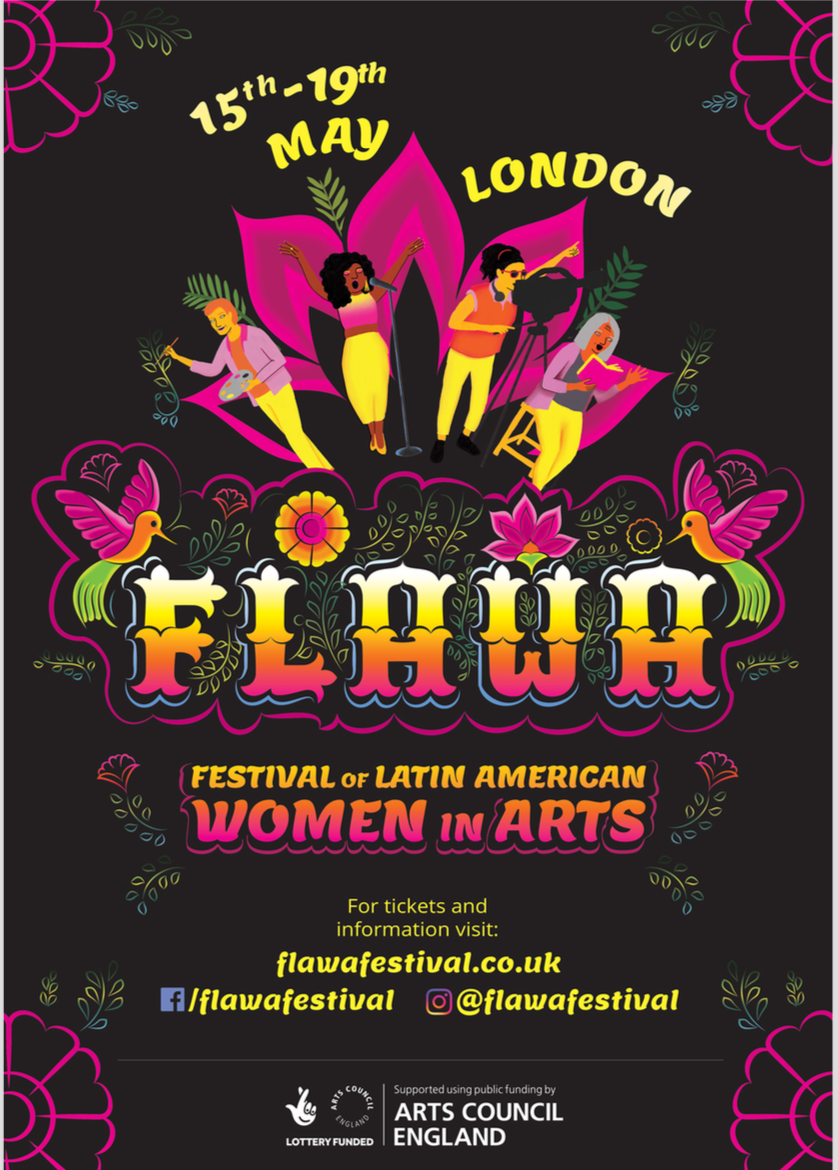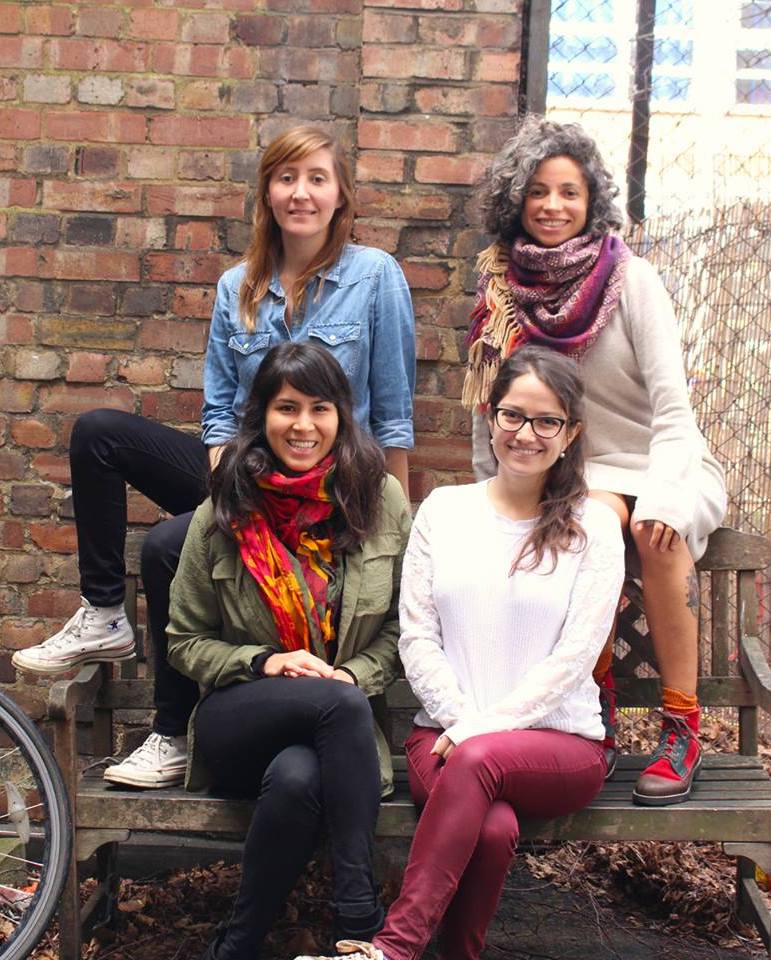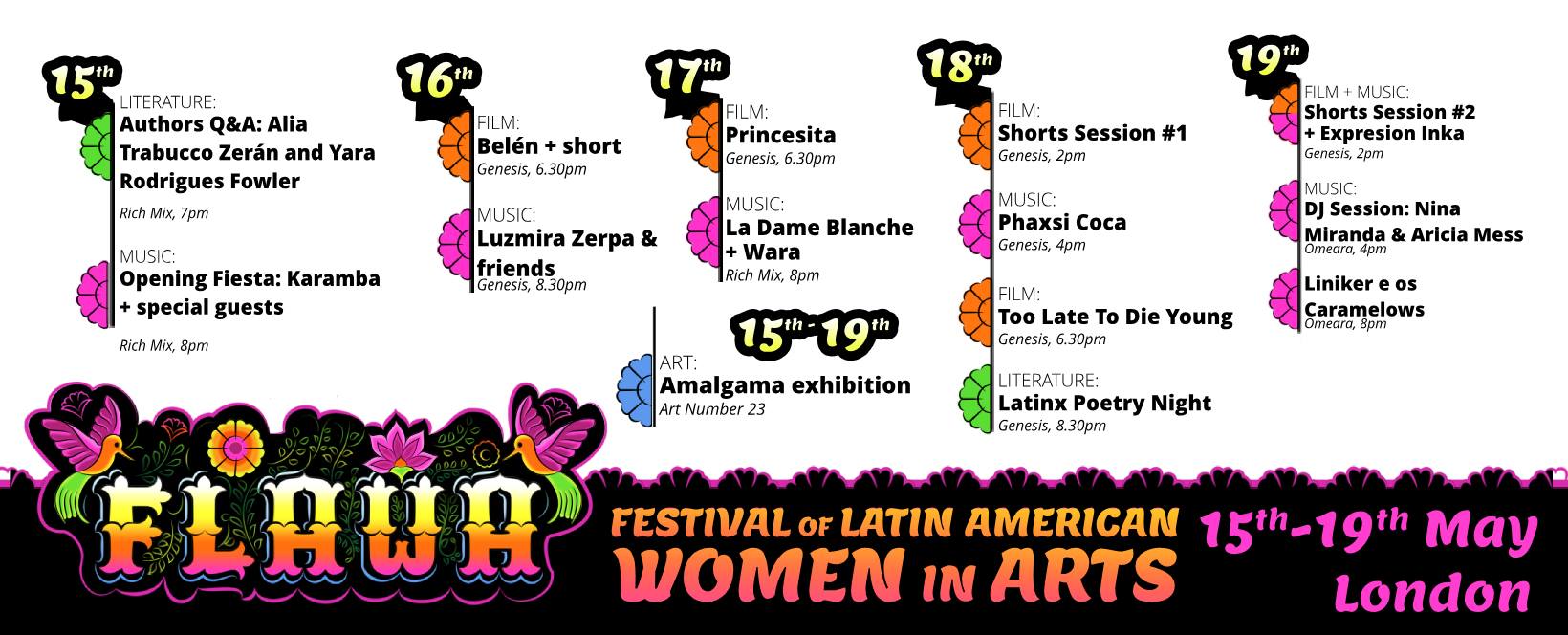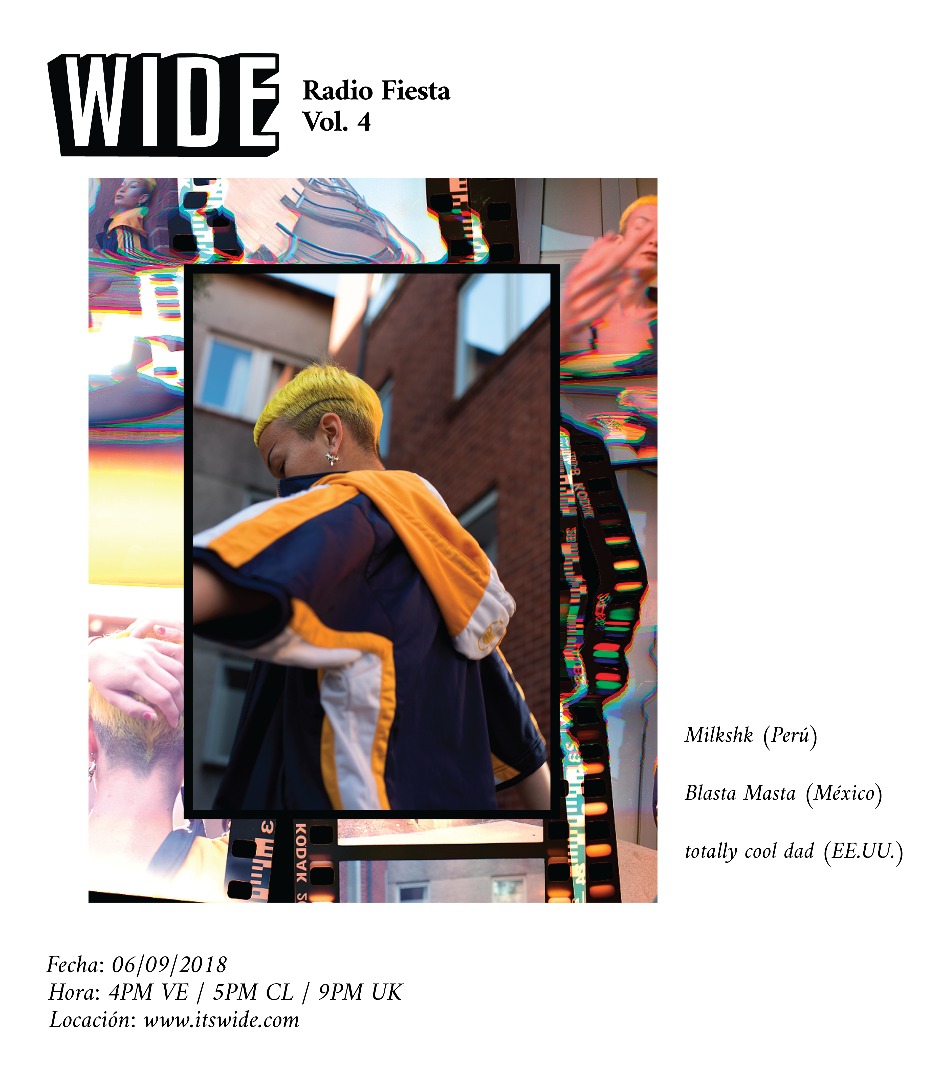FLAWA: a Latin American art festival led by women in London
Teresa is a Venezuelan who has been living for over 5 years in London, came to the city after having spent several years in Spain finding the United Kingdom’s capital city full of diverse opportunities, a vibrant culture and the possibility of rediscovering her own Latina identity.
On the other hand, we have Colombia born and raised Fabiola Morales, who came to the UK to study a Master in Music and Management at the University of Leeds. Later deciding to stay, in search of better professional opportunities after being the Tour Manager of two Colombian bands at the Glastonbury Festival. She is now based in Bristol and teaching at the BIMM.
We asked Teresa how the idea of FLAWA was born she says:
One of the reasons that motivated me to create FLAWA is to make Latin American diaspora visible in London.

Currently we are an important asset in the city and although there are many initiatives in different sectors, I wanted to create something that would unite Latinxs to show the British community and other nationalities the perceptions and creations of our people who live in this city and some others abroad.
Latinas are leading the festival
A political decision was to show only women because many come from totally different backgrounds, this city somehow gives us the opportunity to manifest ourselves in many ways and art is one of them.
FLAWA is the first edition of a festival of this kind in London, a multidisciplinary display that exclusively shows the work of Latin American women in a metropolis that can become truly multicultural, bringing with it an intrinsic identification challenge for the non-Latin audience.

I believe that FLAWA’s challenge for the non-Latin audience is to value and recognise the work of immigrant women. There is naturally an idiomatic barrier that we are trying to diminish with the fact that most of the performances will be in English.
Many people know salsa and reggaetón from Latin American culture. We want to disrupt that conception and show us in other scenes such as visual arts, literature and cinema, it is an interesting challenge for FLAWA in terms of changing the spaces in which Latin American art is typically shown and how women’s work is valued.
Fabiola:
One of the challenges may be the language, cultural difference and of course the “discrimination”, in some way the validation of previous experience that is brought from an artistic market different from the UK. It is common that for a foreigner competition is harder to face than for locals leaving immigrants in second place and even sometimes in a third place of “importance” and opportunity.
Fabiola Morales, from BIMM Bristol, will lead a panel to discuss the experience of Latin American women in the music and culture industry in the UK, in which the director of WIDE Radio, Nikols Latuff, will be present as a panelist, to talk about her experience as a female leading this project that very recently lives in the city of Bristol. Additionally, this panel will also have the presence of music director and producer Eliane Correa, Paula Durán of Soundway Records and music manager María Rivas.
FLAWA shows a more genuine version of Latin America
It is common that Latin America is often built and imagined as a colourful land full of vast Andean mountains or tropical paradises. Or from a perhaps even more “contemporary” conception as the land of desire, blasting reggaeton and never ending summery weather but the reality of the region and of the figure of women differs and is not exactly what the common people across the ocean may think. So how could FLAWA contribute to show a more genuine appreciation of our culture?
Teresa:
Folklore is where we come from and the roots that have generated many trends that we currently have and will be reflected in some of the festival’s activities such as the tribute to Afro-Venezuelan music by Luzmira Zerpa or some dances with Inca Expression and Andean music with Phaxsi Coca, because we believe it is important to honour where we come from.
Nevertheless art is constantly changing and we are creating and modifying those roots with new musical genres, with new artistic expressions and Latin American women have wonderful potential in this construction of new trends.
In this way I believe that FLAWA will be able to contribute a bit in the construction of a new perspective of how the Latin diaspora is seen in London.
Inclusivity all the way through
Fabiola:
FLAWA is being inclusive by offering a programme of different activities that contain a significant share of artistic spectrum and its many currents and styles, each with different representatives of Latin America, contrasting cultural roots and gender diversity.
The bubbling creative scene in London makes it the ideal scenario for this exciting new festival, which celebrates the ever-growing Latinx community in the city. Creating space in the Arts, a field notoriously dominated by men, to show the works of Latin American cisgender, transgender, queer and non-binary women.
A diverse multidisciplinary artistic Line-up
FLAWA has a varied musical line-up and one distinct headliner is the singer, flautist and Cuban percussionist, La Dame Blanche, injecting the festival with its fusion of hip hop, cumbia, dancehall and reggae. Another acclaimed performer is the Brazilian singer Liniker Barros, known for being the vocalist of the soul group Liniker E Os Caramelows and who will bring her wonderful samba-soul melodies that defy the gender norms.

Teresa: Because they reflect who we are, the society that we are today, we find ourselves in these diverse identities and of course LGBTQ + women must be in any of the events to claim and position narratives and looks.
The machismo of our culture will have to get used to it and fortunately perish because we are creating inclusive structures. I think of course it is a very difficult and long battle to fight but that we are building it.
Fabiola:
Women of the queer community highlight tolerance, equality and acceptance of who we are or how we look. The essence and capabilities of a human being should not be defined by superficial and limited prejudices, that do not determine the intellect of a person.
The world we live in today is a highly diverse and contrasting, that requires respect, unity, support and teamwork. Instead of rejection or discrimination that push us away from each other.
Art y Literature written in our language
Exhibitions of Arts and Literature will also be present at FLAWA, led by Silvia Rothlisberger, a multidisciplinary journalist and founder of the radio program Literary South, and Daniela Galán, artist, philosopher and art historian, respectively.
FLAWA will also have a full programme dedicated to Latin American women in Films, curated by Karolina Pelikan, filmmaker and director of Pelikan Pictures.
Definitely FLAWA is the seed of a representative festival of our culture and feminine character as a diaspora in the United Kingdom that perhaps should have existed a long time ago but we can welcome the present and the future. Teresa comments:
The goal is to create a platform and an annual meeting place for women from different communities of the Latin American diaspora that reflect the new trends in the arts of our culture.
I believe that this annual meeting will motivate Latin American people to create and to continue creating because they know that there are different platforms to exhibit their work.
The dream is to create sustainable structures and cultures that enable accessible and visible paths to our diaspora and communities in this city, this country.
WIDE will take part of this great initiative, we invite you to celebrate all latitudes of Latin American arts and culture in FLAWA from May 15 and 19 in the city of London, venues such as Rich Mix, Genesis, Omeara, Art Number 23 and King’s College University, will open their doors to offer a programme of live music events, an impeccable films selection, workshops, literature and other activities.




